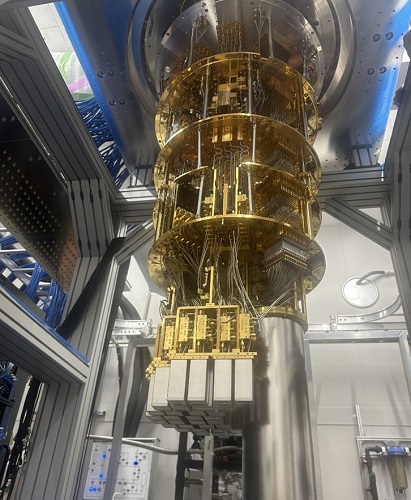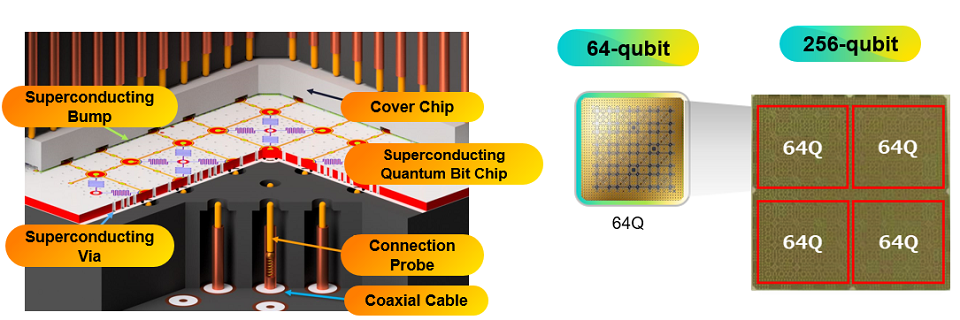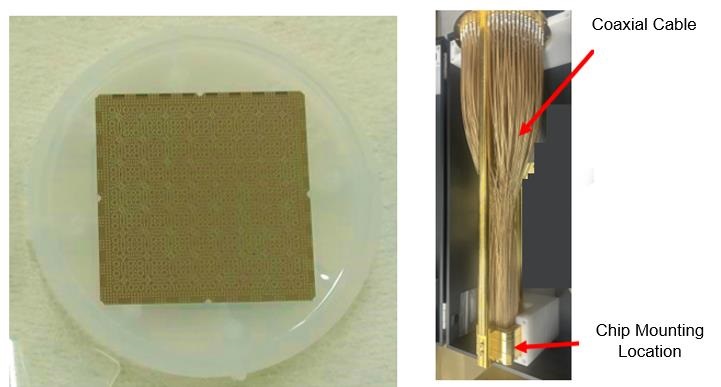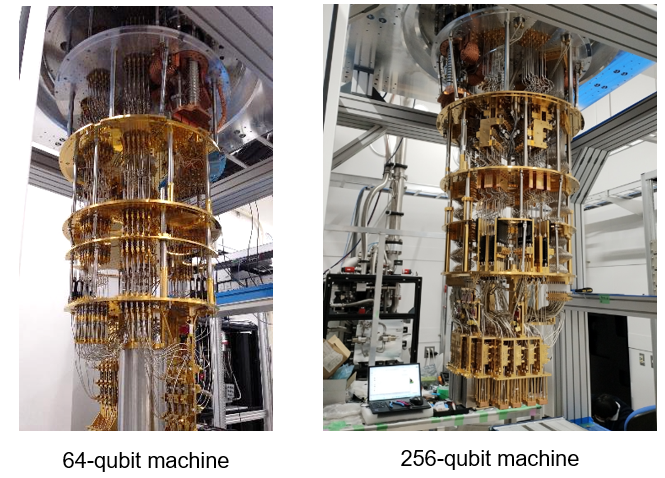
Fujitsu and RIKEN develop world-leading 256-qubit superconducting quantum computer
4x increase in qubits on Fujitsu and RIKEN’s hybrid quantum computing platform to expand computational capabilities
Fujitsu Limited
RIKEN
Kawasaki and Wako, Japan, April 22, 2025
Fujitsu Limited and RIKEN today announced the development of a world-leading 256-qubit superconducting quantum computer, established at the RIKEN RQC-FUJITSU Collaboration Center. This new quantum computer builds upon the advanced technology of the 64-qubit iteration, launched with the support of the Japanese Ministry of Education, Culture, Sports, Science and Technology (MEXT)(1) in October 2023, and incorporates newly-developed high-density implementation techniques. This announcement marks another crucial step toward the practical application of superconducting quantum computers and unlocking their potential to grapple with some of the world’s most complex issues.
Both organizations will integrate the 256-qubit superconducting quantum computer into its platform for hybrid quantum computing lineup and offer it to companies and research institutions globally starting in the first quarter of fiscal 2025. The platform's expansion from 64 to 256 qubits empowers users to tackle more complex challenges, including the analysis of larger molecules and the implementation and demonstration of sophisticated error correction algorithms.
Moving forward, both organizations will further enhance the platform's usability by working to enable seamless collaboration between quantum and classical computers, enabling the efficient execution of hybrid quantum-classical algorithms.
Fujitsu and RIKEN’s 256-qubit superconducting quantum computer overcomes some key technical challenges, including appropriate cooling within the dilution refrigerator which is achieved through the incorporation of high-density implementation and cutting-edge thermal design. Other key features include:
 Figure1: Newly developed 256-qubit superconducting quantum computer
Figure1: Newly developed 256-qubit superconducting quantum computer1. Scalable 3D connection structure
- Enables efficient scaling of qubit count without requiring complex redesigns by arranging 4-qubit unit cells in a 3D configuration
- The 256-qubit machine utilizes the same unit cell design established in its 64-qubit predecessor, effectively demonstrating the scalability of this architectural approach
 Figure 2: 3D connectivity and scalability up to 256 qubits
Figure 2: 3D connectivity and scalability up to 256 qubits Figure 3: 256-qubit chip and sample package for 3D connection structure
Figure 3: 256-qubit chip and sample package for 3D connection structure2. Quadrupled implementation density within dilution refrigerator
- Quadrupled implementation density achieved within the dilution refrigerator, allowing the 256-qubit machine to operate within the same cooling unit as the 64-qubit system
- Highly optimized design that carefully balances heat generation from control circuits with the cooling capacity of the refrigerator, while maintaining the necessary ultra-high vacuum and extremely low temperatures
 Figure 4: Inside the superconducting quantum computer
Figure 4: Inside the superconducting quantum computerFuture Plans
Fujitsu is committed to accelerating the practical application of quantum computers from both hardware and software perspectives. Through its platform for hybrid quantum computing, Fujitsu will provide larger-scale quantum computers to global companies and research institutions conducting joint research in various fields, including finance and drug discovery.
Fujitsu and RIKEN will continue R&D efforts toward the launch of a 1,000-qubit computer, which is scheduled to be installed in a new building at Fujitsu Technology Park in 2026. In addition, the two organizations will extend the installation period of their Collaboration Center from March 2025 to March 2029, and will continue to work on the long-term R&D of technologies that will enable the realization of even larger superconducting quantum computers.
- [1]Grant from the Japanese Ministry of Education, Culture, Sports, Science and Technology:
Quantum Leap Flagship Program (Q-LEAP) "Research and Development of Superconducting Quantum Computers (Research Representative: Yasunobu Nakamura) Grant No. JPMXS0118068682." Related Links
- RIKEN, Fujitsu Launch Collaborative R&D Center in Japan in First Step Toward Realization of Superconducting Quantum Computers
- Japanese joint research group launches quantum computing cloud service
- Fujitsu achieves major technical milestone with world's fastest 36 qubit quantum simulator
- Fujitsu develops quantum/HPC hybrid computing technology to optimize solution brokering for customers
- Fujitsu and RIKEN develop superconducting quantum computer at the RIKEN RQC-Fujitsu Collaboration Center, paving the way for platform for hybrid quantum computing
Material of the press conference
Held on April 22, 2025
About Fujitsu
Fujitsu’s purpose is to make the world more sustainable by building trust in society through innovation. As the digital transformation partner of choice for customers in over 100 countries, our 124,000 employees work to resolve some of the greatest challenges facing humanity. Our range of services and solutions draw on five key technologies: Computing, Networks, AI, Data & Security, and Converging Technologies, which we bring together to deliver sustainability transformation. Fujitsu Limited (TSE:6702) reported consolidated revenues of 3.7 trillion yen (US$26 billion) for the fiscal year ended March 31, 2024 and remains the top digital services company in Japan by market share. Find out more : www.fujitsu.com.
About RIKEN
RIKEN, a National Research and Development Agency, is Japan's largest comprehensive research institution renowned for high-quality research in a diverse range of scientific disciplines. Founded in 1917, initially as a private research foundation, RIKEN has grown rapidly in size and scope, today encompassing a network of world-class research centers and institutes across Japan.
Website: www.riken.jp/en/.Press Contacts
Fujitsu Limited
Public and Investor Relations Division
InquiriesRIKEN
RIKEN Global Communications
Tel: +81-(0)48-462-1225
E-mail: pr@riken.jpAll company or product names mentioned herein are trademarks or registered trademarks of their respective owners. Information provided in this press release is accurate at time of publication and is subject to change without advance notice.
Date: April 22, 2025
City: Kawasaki and Wako, Japan
Company: Fujitsu Limited, RIKEN

